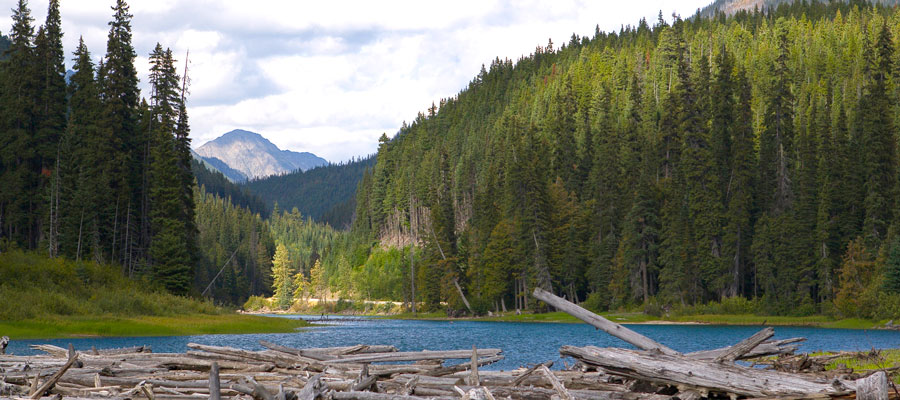A critical juncture for BC’s forest industry

When it comes to understanding the risks that BC’s forests and forest-dependent communities face, you’d be hard-pressed to find two more qualified individuals than Anthony Britneff and Martin Watts.
Between them, the two have worked a combined 70 years in forestry, Britneff serving four decades in senior positions with the provincial forests ministry and Watts a respected consultant specializing in tree growth-and-yield.
So when these men say something is wrong, perhaps seriously so, with how our government assesses the health of our forests, we ought to pay attention.
In briefs filed with not one, but three different provincial bodies, the duo raises troubling questions about the quality of information the government relies on to make key decisions, the most important being how much forest it is ecologically sound to log.
For more than two decades climate change has drastically altered our forests. And the logging industry has cut down forests at faster rates, something that everyone ought to have known could not be sustained.
We’re now poised to see just how bad that day may be. In the massive Prince George Forest District (the largest such administrative unit in BC), the provincial government estimates that today’s logging rates may have to decline by more than half in just four years. But here’s the rub: according to Britneff and Watts, even that dire prediction may understate the magnitude of what lies ahead.
With hard work we may be able to soften the social and economic blows associated with far lower logging rates by manufacturing higher-value forest products, something BC does far too little of. Currently in BC, just one job is generated for every 1,020 cubic metres of wood processed, while in Ontario only 221 cubic metres of wood is needed to achieve the same result.
Moving up the value chain will require significant investments in new BC mills, and such investments are unlikely in the face of uncertainty. In other words, we need to know what’s going on in our forests now more than ever.
Throughout BC, the evidence is in: For more than two decades climate change has drastically altered our forests. Tree species have become increasingly stressed due to warmer winters and hotter, drier summers. And for years in response to those changes, the logging industry has cut down forests at faster rates, something that everyone ought to have known could not be sustained.
This disquieting reality led mayors from across the province to recently pass a resolution at the annual Union of BC Municipalities convention calling on the provincial government to re-evaluate how logging rates are calculated “so that stable, long-term employment [can] be assured and watershed and wildlife spaces protected.”
As the mayors voted in favour of that resolution, briefs filed by Watts and Britneff sat before senior staff at the Ministry of Forests Lands and Natural Resource Operations, BC’s Forest Practices Board and the Auditor General.
In short, the BC government is failing to deal with serious deficiencies in the information it uses to make key forest management decisions.
Worse, the model used to predict future growth of planted forests is “not properly validated against actual tree growth,” even though the government has been re-measuring the growth of plantations for four decades at a cost of millions of dollars.
And, worse still, the government does “not incorporate the effects of climate change into these growth models, particularly in the area of forest health,” the duo say.
In short, the BC government is failing to deal with serious deficiencies in the information it uses to make key forest management decisions and is perpetuating uncertainty.
With the provincial government close to making major decisions on future logging rates in regions like Prince George, the time has come for both the Auditor General’s office and the Forest Practices Board to formally investigate the information brought before them by Watts and Britneff.
The health of our forests and forest industry is at a critical juncture, and it’s time to stop keeping people in the dark.
_
This piece was originally published in the Vancouver Sun.
Topics: Employment & labour, Environment, resources & sustainability

